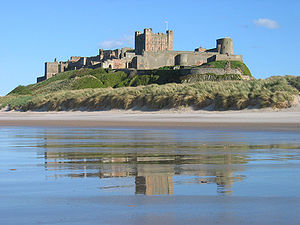Year 547 (DXLVII) was a common year starting on Tuesday (link will display the full calendar) of the Julian calendar. The denomination 547 for this year has been used since the early medieval period, when the Anno Domini calendar era became the prevalent method in Europe for naming years.
| Millennium: | 1st millennium |
|---|---|
| Centuries: | |
| Decades: | |
| Years: |
| Gregorian calendar | 547 DXLVII |
| Ab urbe condita | 1300 |
| Assyrian calendar | 5297 |
| Balinese saka calendar | 468–469 |
| Bengali calendar | −46 |
| Berber calendar | 1497 |
| Buddhist calendar | 1091 |
| Burmese calendar | −91 |
| Byzantine calendar | 6055–6056 |
| Chinese calendar | 丙寅年 (Fire Tiger) 3244 or 3037 — to — 丁卯年 (Fire Rabbit) 3245 or 3038 |
| Coptic calendar | 263–264 |
| Discordian calendar | 1713 |
| Ethiopian calendar | 539–540 |
| Hebrew calendar | 4307–4308 |
| Hindu calendars | |
| - Vikram Samvat | 603–604 |
| - Shaka Samvat | 468–469 |
| - Kali Yuga | 3647–3648 |
| Holocene calendar | 10547 |
| Iranian calendar | 75 BP – 74 BP |
| Islamic calendar | 77 BH – 76 BH |
| Javanese calendar | 435–436 |
| Julian calendar | 547 DXLVII |
| Korean calendar | 2880 |
| Minguo calendar | 1365 before ROC 民前1365年 |
| Nanakshahi calendar | −921 |
| Seleucid era | 858/859 AG |
| Thai solar calendar | 1089–1090 |
| Tibetan calendar | 阳火虎年 (male Fire-Tiger) 673 or 292 or −480 — to — 阴火兔年 (female Fire-Rabbit) 674 or 293 or −479 |

Events
editBy place
editEurope
edit- Gothic War: Belisarius recaptures Rome from the Ostrogoths, but his Italian campaign is unsuccessful (he is starved of supplies and reinforcements from Constantinople).
- The mosaic panels of Justinian I and Theodora I with attendants, in the Basilica of San Vitale (Ravenna), are made (approximate date).
- Theudebald, age 13, succeeds his father Theudebert I after a reign of 14 years, and becomes king of Austrasia (or 548).
Britain
edit- King Ida establishes the kingdom of Bernicia. He builds Bamburgh Castle (northeast England) as a fortress that will become the seat of Anglo-Saxon kings (according to the Historia Brittonum).
Africa
edit- Battle of Marta: The Byzantine army under John Troglita is defeated by Moorish tribes in Tripolitania. He flees to Lunci (9 km south of Mahares[1]), and is forced to withdraw north to the fortress of Laribus (near modern El Kef[2]).
Asia
edit- The Tonkin revolt (Vietnam), led by Lý Nam Đế, is suppressed by the Chinese Liang dynasty.
By topic
editReligion
edit- The Basilica of San Vitale (Ravenna) is consecrated by bishop Maximianus of Ravenna.
Births
edit- Pei Ju, official of the Sui dynasty and Tang dynasty (d. 627)
- Zhu Manyue, empress of Northern Zhou (d. 586)
Deaths
edit- February 10 – Scholastica, Christian nun
- March 21, death of twin brother of St Scholastica, Saint Benedict, famous for building the Monastery of Mt Cassino and for his Benedictine Monastic Rule, Patron Saint of Europe, dies
- Gao Huan, general of Northern Wei (b. 496)
- Maelgwn Hir ap Cadwallon, king of Gwynedd (approximate date)
- Theudebert I, king of Austrasia (or 548)
- Tribonian, Byzantine jurist and author of the Codex Justinianus
References
edit- ^ Pringle 1981, p. 202
- ^ Pringle 1981, pp. 205–206
- Bibliography
- Pringle, Denys (1981). The Defence of Byzantine Africa from Justinian to the Arab Conquest: An Account of the Military History and Archaeology of the African Provinces in the Sixth and Seventh Century. Oxford, United Kingdom: British Archaeological Reports. ISBN 0-86054-119-3.